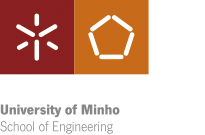Thursday, 9/28/2017
The Centre of Biological Engineering (CEB) of the
School of Engineering of the University of Minho (EEUM) will develop a
methodology that detects fungi in food. The MYCHIF project is funded by the
European Food Safety Authority (EFSA).
The CEB of
EEUM is the only Portuguese entity in the group that is developing a new
methodology capable of analysing the risk of contamination in food and animal
feed. The focus of the project, funded by EFSA, aims to develop a method that
evaluates the presence of mycotoxins – toxic substances produced by fungi – in
human food and animal feed, and evaluate its effects on human, animal and
environmental health. The new methodology aims at answering to situations
currently not covered by the EFSA, and will focus on risk assessment due to the
presence of mixtures of mycotoxins in food. One of the key points of the MYCHIF
project, which will be based on an exhaustive revision of published papers and
research studies, will also be the prevention of future exposure risks,
resulting from climate changes.
Several study
cases will be analysed, which were selected with the objective of covering the
entire food chain and considering various types of contamination. The project
also plans to analyse plants, which can transmit the fungi to the animal and,
through it, pass on the contamination to milk. Contamination through food
processing will also be analysed in the case of human food.
MYCHIF –
considered an innovative project by EFSA – will enable progress in preventing food
contamination, while presenting a strong sustainability component in itself, as
it will contribute to reduce the food waste in production at primary level.
Apart from the EEUM, represented by
CEB, the MYCHIF project brings together another six European entities, namely
Università Cattolica del Sacro Cuore and the Università degli Studi di Parma,
in Italy, Queen's University Belfast, in United Kingdom, the Istituto di
Biometeorologia del Consiglio Nazionale delle Ricerche and the Istituto
Superiore di Sanità, in Italy, and the Institut National de la Recherche
Agronomique, in France.
The research team is composed of
Armando Venâncio, Associate Professor of the Department of Biological
Engineering (DEB) of the EEUM, Nelson Lima and Ana Paula Gonçalves, both
researchers from CEB.
+
info: https://www.ceb.uminho.pt/amg/Projects/Details/6059

